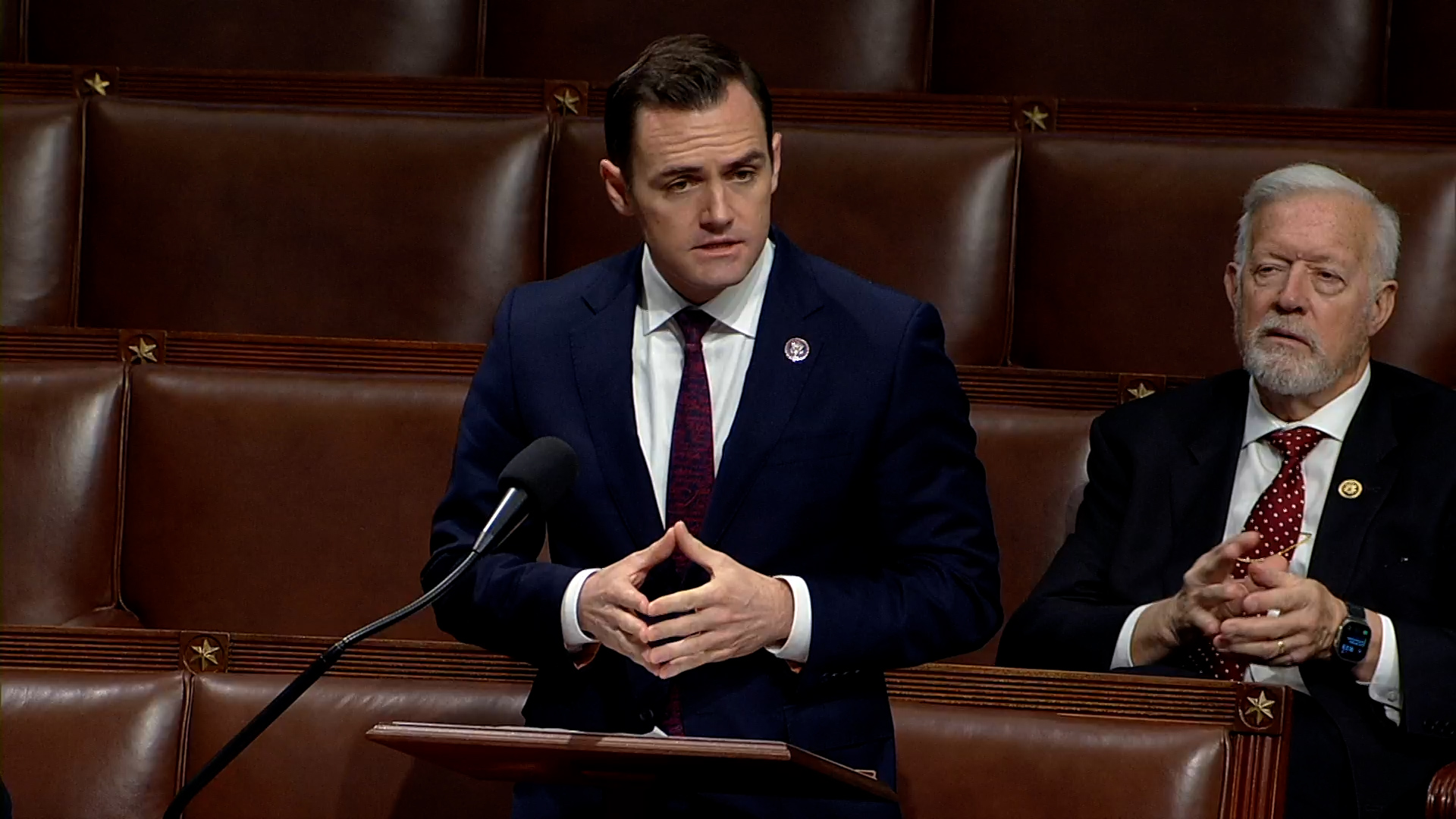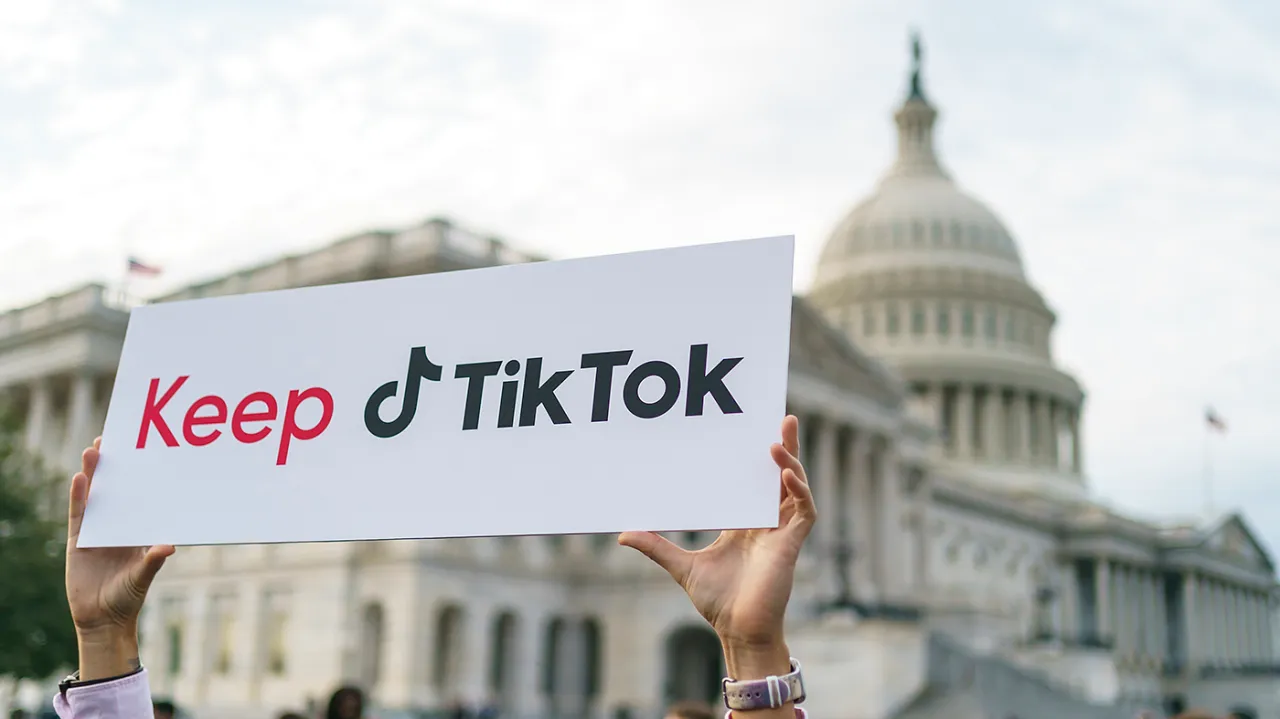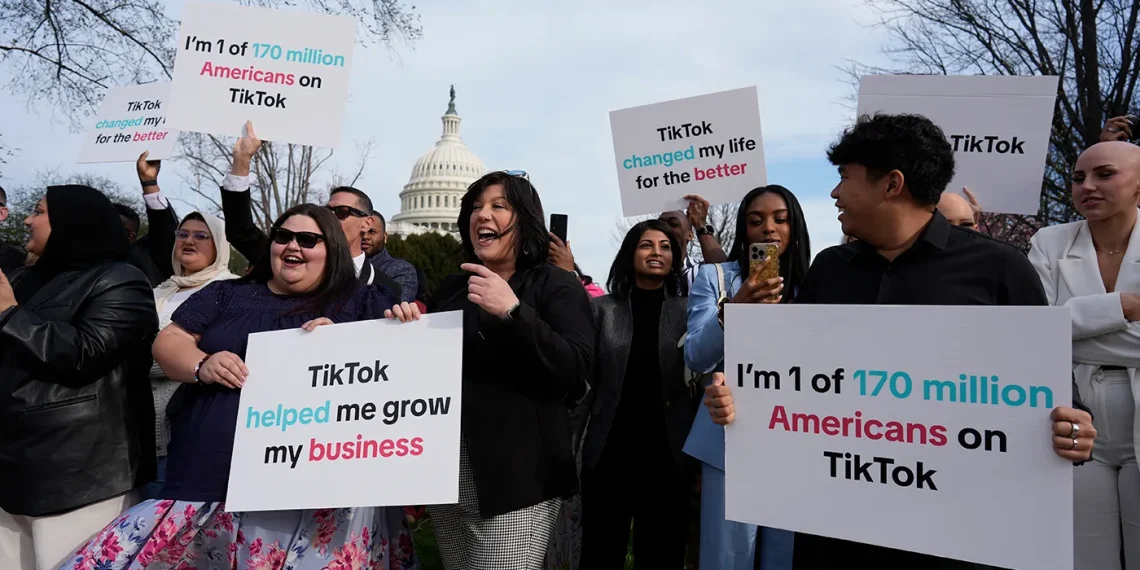TikTok reiterated its concerns about free speech following the House of Representatives’ passage of a bill aimed at banning the app in the U.S. unless its Chinese owner, ByteDance, divests its stake within a year.
The legislation, backed by bipartisan support, raises national security worries over potential data sharing with China.
With a resounding House approval, the bill now advances to the Senate, where President Biden has signaled his readiness to sign it.

Concerns persist that TikTok’s vast user data, encompassing 170 million Americans, poses risks of exploitation by foreign entities, prompting swift legislative action.
TikTok condemned the bill as a threat to free speech rights, echoing sentiments expressed earlier regarding similar legislative attempts.
Despite assurances from TikTok that it has never shared U.S. data, bipartisan apprehensions persist, underscored by Senator Mark Warner’s warning of potential Chinese propaganda infiltration.
Critics argue that the bill’s efficacy is questionable, with the Knight First Amendment Institute highlighting loopholes that could enable data exploitation through other means.

Some Democrats advocate for stronger data privacy laws, expressing doubts about the ban’s legal viability.
The bill’s passage in the House signals a mounting bipartisan consensus on TikTok’s national security implications, with Senate Commerce Committee Chair Maria Cantwell voicing support.
As the debate intensifies, TikTok’s fate hangs in the balance, reflecting broader concerns over tech regulation and free speech.





